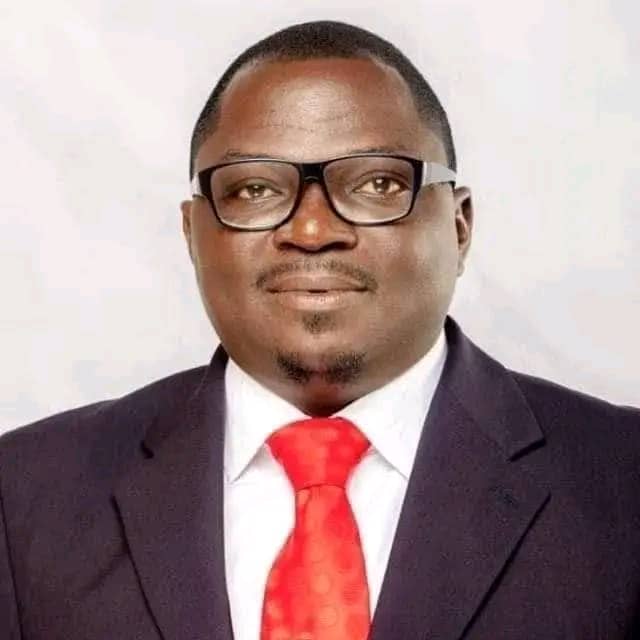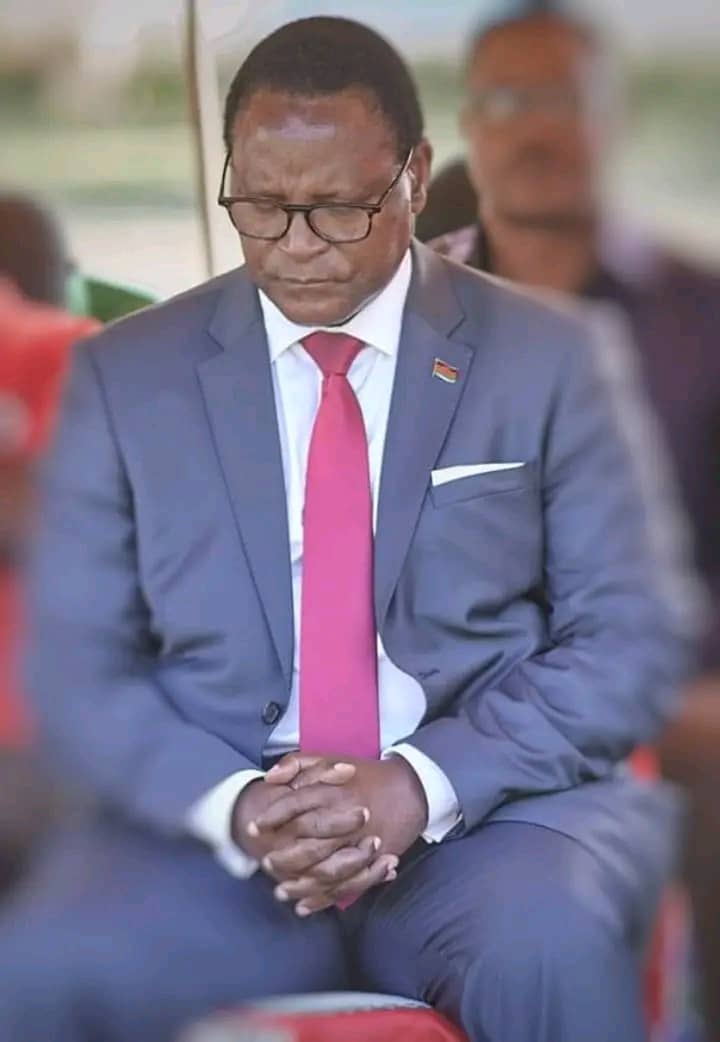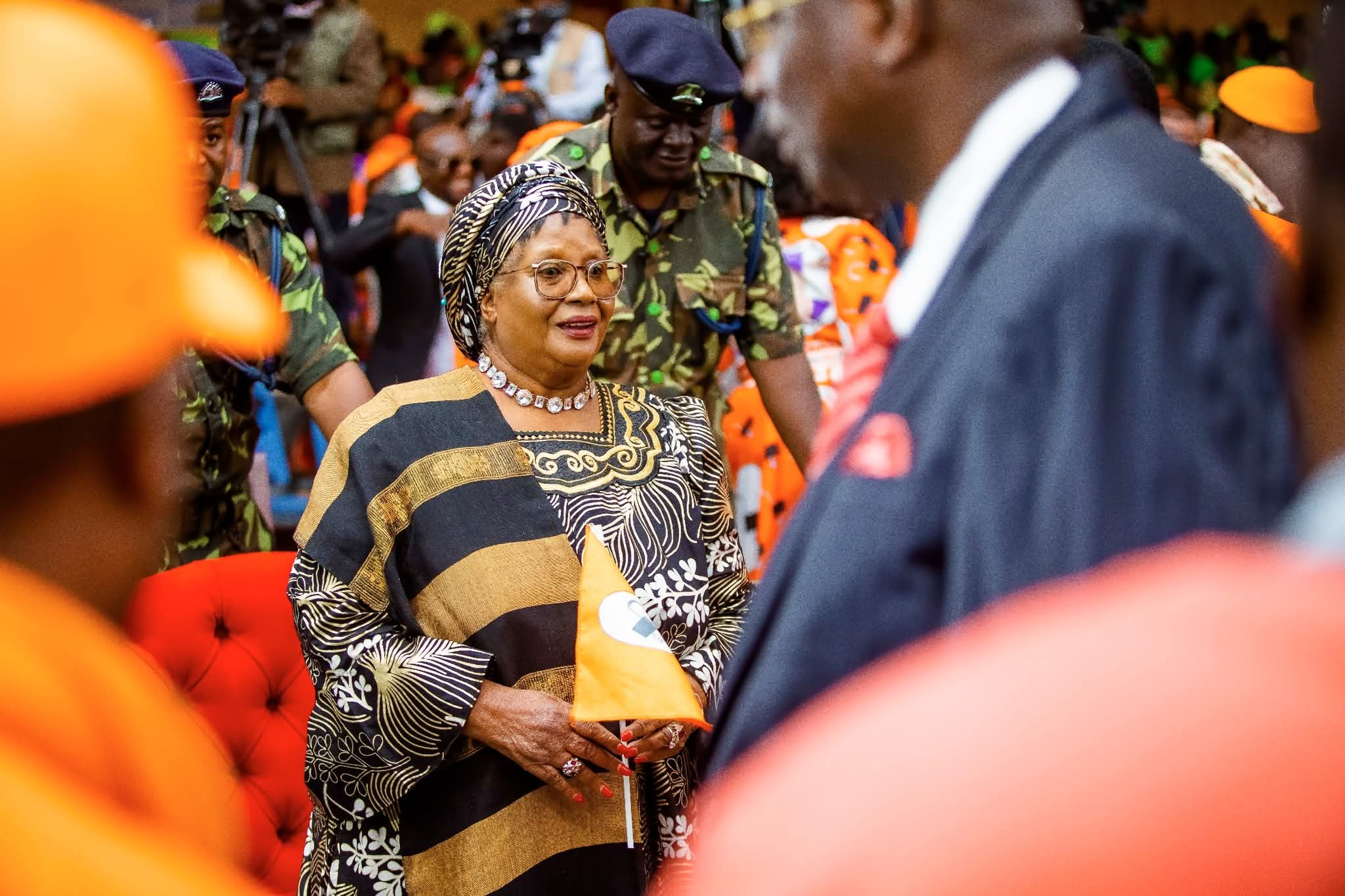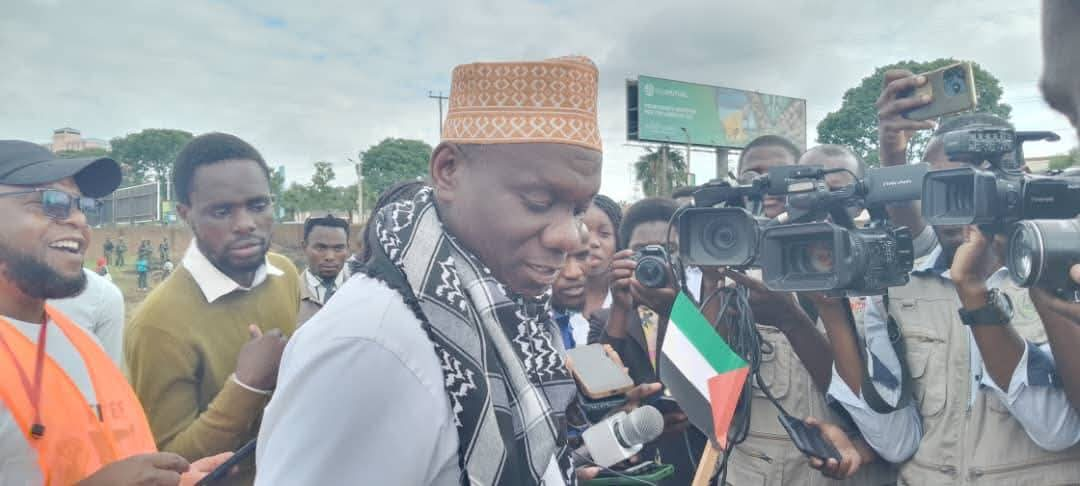
By Burnett Munthali
Bon Kalindo, a vocal political activist and former Member of Parliament, has released a powerful audio warning to Malawians on May 31, 2025, cautioning the nation against what he describes as “a systematic, corrupt plan to buy public trust” through reckless cash handouts from the presidency. In the audio clip, Kalindo lays bare the increasing desperation within the corridors of power, accusing President Lazarus Chakwera and the Malawi Congress Party (MCP) of undermining democratic principles ahead of the upcoming elections.
Kalindo reveals that President Chakwera has reportedly resorted to kneeling before groups of people visiting State House, pleading with them to defend his image and campaign on his behalf. According to Kalindo, Chakwera begs them to proclaim that he is “a good man,” even though he is widely viewed by critics as corrupt and incompetent. Kalindo suggests that this performative humility is not genuine but a calculated act to gain sympathy and votes, particularly as the president faces growing criticism and pressure from the citizenry.
To win the favor of traditional leaders and rural voters, Kalindo claims that the government is planning to increase salaries and clear arrears for all chiefs starting this July. However, he warns that these payouts are not acts of goodwill but part of a grand scheme to manipulate loyalty ahead of the 2025 general elections. The activist further warns that the integrity of teachers—a group that has long suffered from delayed promotions and salary grievances—is now under threat as they are being handed MWK 50,000 in cash as a bribe, allegedly to sway their political opinions and actions.
In the same breath, Kalindo warns that traditional leaders are receiving up to MWK 80,000 each in this ongoing operation, which he bluntly describes as “open corruption.” He alleges that all of this money is being funneled from the MWK 67 billion allocated to State House—a figure that has already raised eyebrows among critics for its lack of transparency and accountability. “Musatengeke a Malawi anzanga” (Do not be deceived, fellow Malawians), Kalindo urges in his emotional plea.
What Kalindo finds especially disheartening is the increasing desperation among ordinary Malawians. He points to incidents where people wake up as early as 3:00 a.m. to take cold baths and queue for transportation to the State House, all for the hope of receiving MWK 50,000. He laments that even police and military vehicles are now being used to ferry villagers and chiefs to Lilongwe—a misuse of national resources that underscores the rot in the system.
While the country is bleeding from poverty and poor service delivery, Kalindo says, this government is preoccupied with “stealing and buying votes.” He notes the dire conditions in public hospitals, where there is a shortage of essential supplies and drugs. It is, therefore, an insult to national dignity, he argues, for the president to engage in distributing cash to selected individuals while thousands of Malawians are left to die in under-resourced health facilities.
Kalindo reminds Malawians that no previous president—be it Bakili Muluzi, Bingu wa Mutharika, or Joyce Banda—ever resorted to inviting people to the State House for cash handouts. He warns that this behavior is not only unpresidential but signals that Chakwera’s administration is planning for an undignified exit and using taxpayer money as a lifeline to prolong its rule.
He also raises concerns about infiltration and betrayal in the political system. Kalindo says many Members of Parliament from opposition parties are now operating as “double agents,” pretending to oppose MCP during the day while secretly working with the ruling party at night. This, he says, is contributing to the erosion of public trust in all branches of government.
Disturbingly, Kalindo accuses MCP of establishing a militant youth wing that is allegedly being trained to attack and possibly eliminate opposition leaders. He warns that if the opposition fails to unite, the country may see politically motivated violence similar to that witnessed in Rwanda. He calls this a national security threat that must not be taken lightly.
In his scathing critique, Kalindo says both the MCP and the DPP have failed the country and have strayed from the principles of democracy. He mentions that DPP is currently entangled in primary election disputes, proving that it too is not ready to lead or present a united front.
Kalindo’s message includes a direct plea to the Minister of Health, Khumbize Chiponda. He challenges her to make an unannounced visit to Bwaila Hospital in Lilongwe, where he claims expectant mothers are suffering immensely. He describes the labor ward as being in a state of disrepair, with no functional toilets, closed bathroom facilities, and nurses who are allegedly rude and insensitive to the plight of the patients.
He further highlights nepotism in national institutions, particularly within the Malawi Police Service and the Malawi Defence Force, where promotions are reportedly being made based on tribal connections and favoritism, rather than merit.
Kalindo’s closing message is a sobering call to all Malawians. He urges voters to think critically as they approach the next election and to reject President Chakwera’s bid for a second term. He warns that accepting MWK 50,000 or MWK 80,000 in exchange for political loyalty may lead to the nation being sold to political vultures who care little for the suffering of the ordinary citizen.
“Take care, fellow Malawians,” Kalindo says. “Do not sell your vote, do not sell your country. Those who are being brainwashed by cash handouts must know that they are handing over Malawi to looters.”




